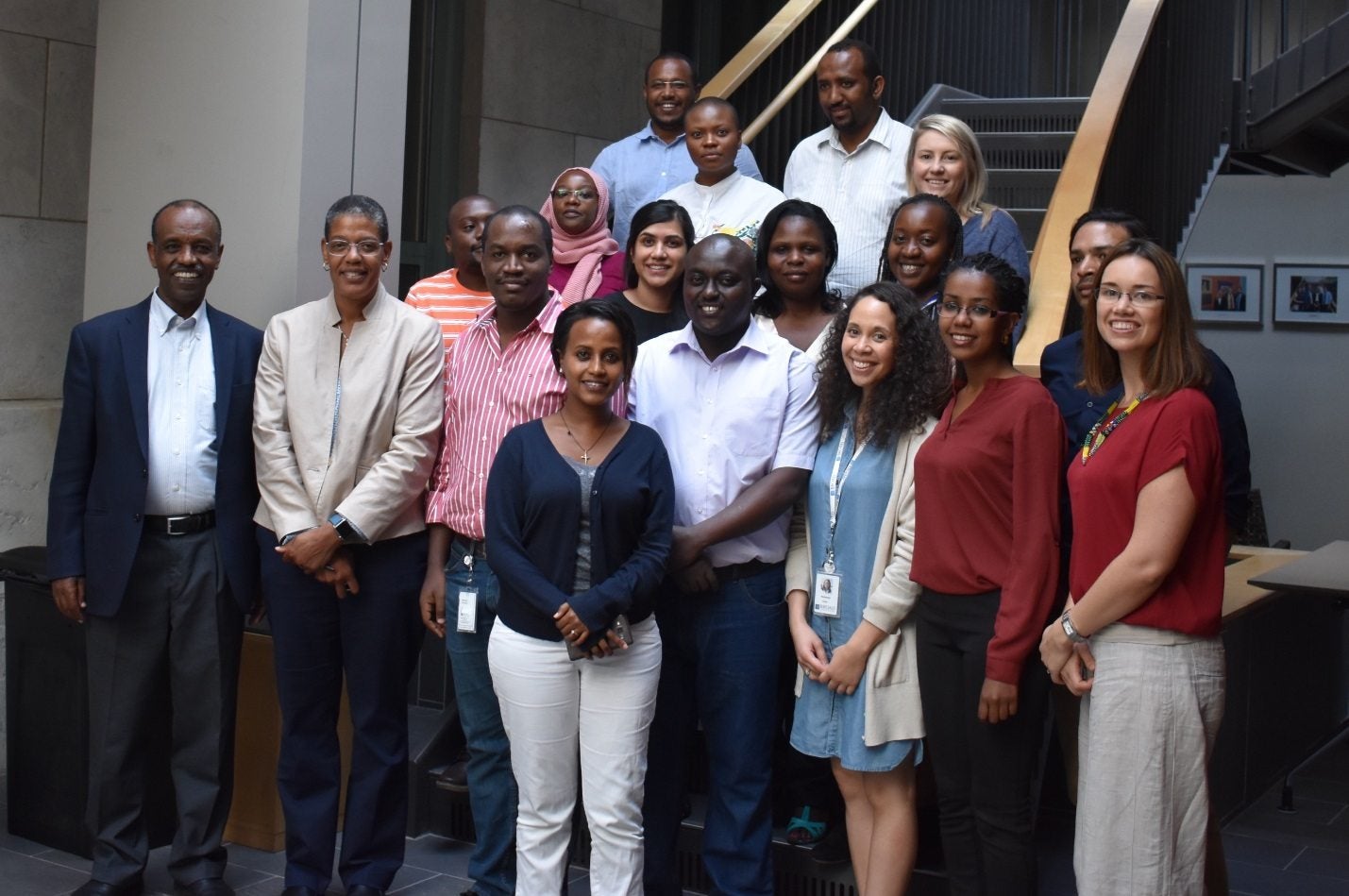Innovative Education Program

To achieve this goal, GINGER has brought together 17 early-career African scientists from six universities and institutes in East and South Africa to take part in the inaugural two-year research education program, which launched in July 2017. The scientists’ backgrounds vary from clinical psychiatrists, geneticists, epidemiologists, pharmacologists, and public health professionals. Each scientist is also directly involved with supporting the scholarship of current research being conducted in neuropsychiatric genetics led by Department of Epidemiology faculty.
The GINGER integrated model promotes skills development, collaboration, and peer-to-peer learning through in-person research workshops and virtual classroom activities. GINGER also offers a series of introductory research courses run in collaboration with partner institutions in Ethiopia, Kenya, South Africa and Uganda, with the goal of introducing fundamental research skills such as biostatistics, epidemiology and programming, earlier in potential researchers’ academic careers, in order to spark interest and support research curriculum development. In sum, GINGER is comprised of the following components:
- Research Workshops:
A series of neuropsychiatric genetics workshops focusing on epidemiology, biostatistics, writing, as well as research portfolio and career development - Virtual Coursework:
Weekly virtual training and mentoring sessions to follow the progress of individual projects and learn from renowned researchers in the field of neuropsychiatric genetic - Partner Institution Onsite Trainings:
Onsite skills based training to be taught at each collaborative institution, open to a larger audience, including students, post-doctoral fellows, and faculty
GINGER in the News:
Harvard T.H. Chan School of Public Health Magazine – Frontlines Winter 2018
https://www.hsph.harvard.edu/magazine/magazine_article/front-lines/
Harvard T.H. Chan School of Public Health – Featured News Stories 2017
https://www.hsph.harvard.edu/news/features/africa-genetics-neuropsychiatric-disorders/
The Lancet – Global Health: Vol 6, No. 3, March 2018
http://www.thelancet.com/journals/langlo/article/PIIS2214-109X(18)30042-1/fulltext



